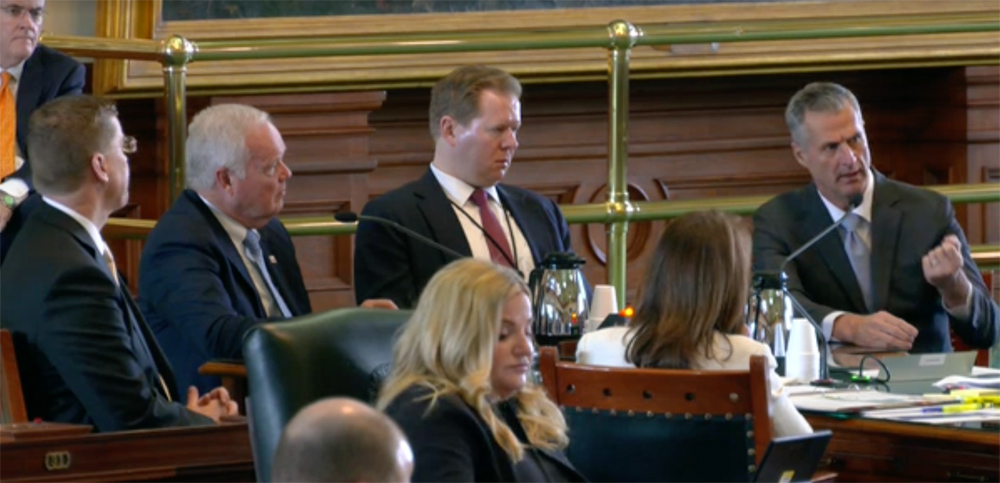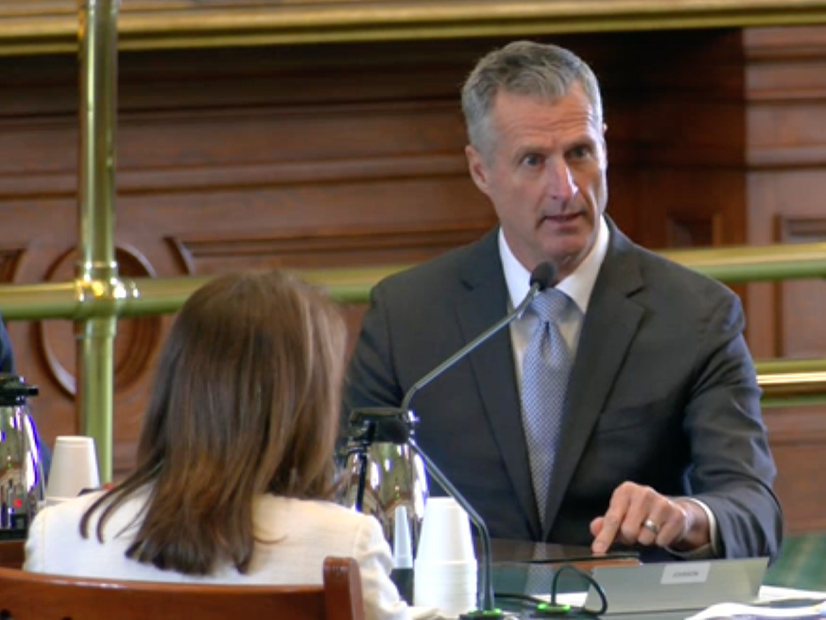ERCOT interim CEO Brad Jones last week continued his push for a Texas gas desk in testimony before state legislators, who are toying with the idea creating a gas market monitor after disruptions in fuel supplies nearly collapsed the grid during last winter’s major storm.
Appearing Wednesday before the Senate Business and Commerce Committee, Jones compared ERCOT’s lack of transparency into the state’s natural gas system with looking through a peephole in the front door.
“We see images, we see shapes, but we don’t necessarily see the full picture of what we need to see. We don’t have a full view of the reliability situations in the gas market,” he said. “This is important today in our market as we try to assess the reliability of natural gas generators to get the fuel they need to produce the generation we need.”
Jones told the committee that ISO-NE, NYISO and PJM all have gas desks manned by staff 24/7. He has for several months pitched the grid operator’s board and stakeholders on the idea of having staff who “can gather that information and make sure we have the situational awareness we need at ERCOT.”
“We don’t know when a pipeline is out for maintenance or a compressor station on outage for something that is broken,” Jones said.

In October, he said staff “discovered by happenstance” that one generator it was counting on for power during a future low-wind day would not be able to operate because its gas supply transportation system would be undergoing maintenance. After a few calls and with the regulators’ help, staff was able to identify the transportation company and have the maintenance outage rescheduled “in a very cooperative way.”
“It was very helpful they did that, but the key is we didn’t know the information we needed to know,” Jones said.
For the moment, Jones believes the grid operator can get the information it needs through “voluntary cooperation,” but with the Texas Energy Reliability Council’s lead. The agency is made up of leaders from ERCOT, state regulators and industry. It has been meeting once or twice a month lately, helping improve coordination between the electric and gas sectors.
Asked whether Jones needed anything from legislators to make the gas desk a reality, he said not for the time being.
“The TERC has the capability to work through these issues,” he said. “Absent a cooperative environment, which I fully believe we have with the gas companies, TERC has the ability to make those recommendations to the legislature for the next legislative session.”
Increasing Oversight
The back-and-forth revealed that legislators may be conflating an operations desk like some gird operators have with the market monitors that keep an eye on wholesale electricity markets.
However, the gas industry is commonly seen as the weak link in ERCOT’s ability to meet demand with supply. While the grid operator’s generation and transmission facilities were required to be winterized and inspected before this winter, gas facilities don’t have to meet the same requirements until next winter.
The Railroad Commission (RRC), which regulates Texas’ intrastate oil and gas industry, is seen as being too chummy with the industry it regulates and has been accused of slow-walking regulatory changes. The commission’s first winterization rules allowed companies to opt out for a $150 fee, but that was changed after political pushback. (See Texas Senators Call for New RRC Weatherization Rules.)
A joint report by FERC and NERC pointed to the lack of consistent natural gas supplies to power plants as among the major causes for the widespread outages that followed last year’s winter storm. Natural gas supplies again dropped this year during several cold fronts, indicating shut-in production at Texas natural gas facilities, Bloomberg said.
“We need to continue our oversight responsibilities,” Committee Chair Charles Schwertner (R) said. “I think what happened last February has in some part the responsibility and blame of the legislature for lack of oversight.”
RRC Chair Wayne Christian was evasive in several of his responses to the committee. He told the committee there is “no state, nation, anything” that has daily monitoring and reporting of the gas supply.
Christian, who faces accusations of ethics violations, is in a Republican primary runoff with oil and gas attorney Sarah Stogner, who gained attention with a racy video involving her riding a pumpjack.
“I hesitate to add another layer of government regulation to the free market natural gas system.” Christian said.
He may not have a choice. Sen. Donna Campbell (R) said she might file legislation to gain greater transparency into the natural gas market when the 88th Texas legislature goes into session next January.
“I haven’t heard of any agency that wants more regulation by the legislature, but I will take that up,” Campbell said.




